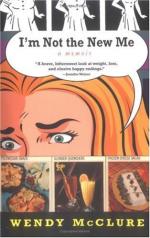On the way back she hardly noticed the dreary and draggled pair, who had little to say for themselves. Many things that had puzzled and troubled her ranged themselves in a dreadful sequence and order now in her unsuspicious mind. On their arrival she made some arrangements for their comfort, quietly; then went to her room, and did not come down again.
Windham left early in the morning, went straight back to Dr. Saxon, and told him the whole story.
“I hardly know whether I’m a villain or not,” Windham concluded.
“You might as well be,” the doctor growled. “You’ve been a consummate fool, and one does about as much harm as the other. Go home now and stay there; and don’t do anything more, for heaven’s sake, until you hear from me.”
Windham went home, and was very miserable, as may be supposed. Hearing nothing for some time, he could not bear it, and wrote to Mary that he honored and admired her, and thought everything of her that he ever had or could. In a week he got this reply:
“Mary Mandison has received Philip Windham’s letter, and can only reply that there is nothing to be said.”
This stung him more deeply than silence, and he wrote that he was going to see her on a certain day, and begged her not to deny him. He went at the time, and she saw him, simply sitting still, and hearing what he had to say. He hardly knew what to say then, but vowed and protested, and finally complained of her coldness and cruelty. She replied that she was not cold or cruel, but only, as she had told him, there was nothing to be said. In the end he found this was true, and rushed away in despair.
Mary had seemed calm; but when her mother came in that afternoon and looked for her, she found her in her room, lying on her face.
When she knew who it was, she raised herself silently, looked in her mother’s face a moment, put her arms about her neck, and hid her hot, dry eyes there as she used to do when a child.
Late that night those two were alone together in the same place, and, before they parted, the mother said:
“You were always my brave child, and you are going to be my brave Mary still.”
And Mary answered with a low cry:
“Yes—yes; but not now—not now!”
For a good while Windham felt the sensation of having run headlong upon a blank wall and been flung back and crippled. But the feeling wore itself out as the months passed.
It was nearly a year before he heard from Dr. Saxon, and he had given up looking for anything from him, when he received a cold note, inviting him to call at the doctor’s home, if he chose, at a certain date and hour. At the time set he went to the city, and rang the doctor’s bell as the hour was striking.
[Illustration: “‘AGNES, DO YOU KNOW?’ HE ASKED. AND SHE ANSWERED, ‘YES.’”]
He was shown into the library, and when the door closed behind him, he fell back against it. Dr. Saxon was not the only person in the room; at the farther end sat Agnes Maine. She knew nothing of his coming; and when she glanced round and saw him, she stood up and faced him, with her hands crossed before her, her breathing quickened, and her face flushed blood-red.




